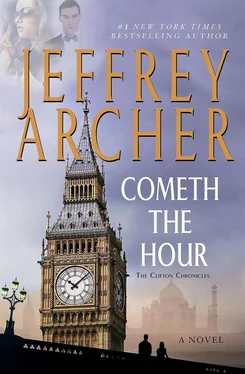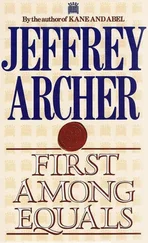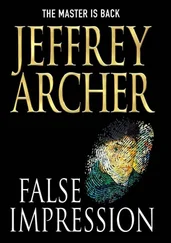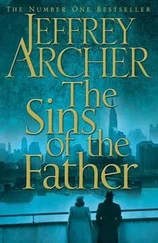Virginia concentrated on what he had to say, as she clearly couldn’t take notes.
“This place is not so much an open prison,” continued Mellor, “as an extension of the Open University, with crime the only subject on the curriculum. And I can tell you, several of my fellow inmates are postgraduates, so Sloane isn’t going to get away with it. But I can’t do a lot about it while I’m still locked up in here.”
“I’ll do whatever I can to help,” said Virginia, scenting another payday.
“Good, because it won’t take much of your time, and you’ll be well rewarded.”
Virginia smiled.
“You’ll find a small package in...”
Only Harry seemed surprised by the press coverage the following morning. The newspapers were dominated by the one photograph they had of Babakov, standing next to Stalin. The inside pages reminded readers of the campaign Harry had been conducting on behalf of PEN for the past decade, and the editorials didn’t hold back on their demands that Brezhnev should set the Nobel Laureate free.
But Harry feared the Russians would still procrastinate, secure in their belief that, given time, the story would eventually go away, to be replaced by another shooting star that caught the press’s fickle attention. But the story didn’t go away because the prime minister stoked the dying embers until they burst back into flame when he informed the world’s press that he would raise the subject of Babakov’s incarceration with the Soviet leader when they met at their planned summit in Moscow.
At the same time, Giles put down several written questions to the Foreign Secretary and initiated an Opposition day debate in the Lords. But, he warned Harry that when it came to international summits, the mandarins would have arranged the agenda well in advance; the questions that would be asked, the replies that would be forthcoming and even the wording of the final press statement would have been agreed long before the two leaders posed for photographs on the opening day.
However, Giles did get a call from his old friend Walter Scheel, the former West German foreign minister, to let him know the Russians had been taken by surprise by the worldwide interest in Babakov, and were beginning to wonder if releasing him wouldn’t be the easy way out, as few of their countrymen still had any illusions about how oppressive the Stalin regime had been. And prize or no prize, Uncle Joe was never going to be published in the Soviet Union.
When the prime minister returned from Moscow four days later, he didn’t talk about the new trade agreement between the two countries or the proposed reductions in strategic nuclear missiles, or even the exciting cultural exchanges which included the National Theatre and the Bolshoi Ballet. Instead, Jim Callaghan’s first words to the waiting press as he stepped off the aircraft were to announce that the Russian leader had agreed that Anatoly Babakov would be released within a few weeks, well in time for him to attend the prize-giving ceremony in Sweden.
An official from the Foreign Office called Harry at home the following morning to let him know that the Russians had refused to issue him with a visa so he could fly to Moscow and accompany Babakov to Stockholm. Unperturbed, Harry booked a seat on a flight that would arrive at Arlanda Airport shortly before the Russian jet landed, so they could meet up as Anatoly stepped off the plane.
Emma reveled in Harry’s triumph, and almost forgot to tell him that the Health Services Journal had named the Bristol Royal Infirmary as its hospital of the year. In its citation, it highlighted the role played by Mrs. Emma Clifton, the chairman of the trustees, and in particular her grasp of the problems facing the NHS and her commitment to both patients and staff. It ended by saying that she would not be easy to replace.
This only served to remind Emma that her time as chairman was drawing to a close, as you were not allowed to serve on a public body for more than five years. She was beginning to wonder what she’d do with her time now that Sebastian had agreed to take over as chairman of Barrington’s Shipping.
The following morning, Virginia boarded a train to Temple Meads. On arrival in Bristol she hailed a cab, and when the driver pulled up outside Desmond Mellor’s office a few minutes later, it was clear she was expected.
Miss Castle, Mellor’s long-suffering secretary, showed her into the chairman’s office. Once she’d closed the door behind her and Virginia was alone, she carried out Desmond’s instructions to the letter. On the wall behind his desk was a large oil painting of stick figures dashing backward and forward. She took the picture down to reveal a small safe embedded in the wall, entered the eight-digit code she’d written down within moments of leaving the prison and extracted a small package that was exactly where Desmond had said it would be.
Virginia placed the package in her handbag, locked the safe door, swiveled the dial around several times and hung the painting back on the wall. She then rejoined Angela in her office but turned down the offer of a coffee and asked her to order a taxi. She was back out on the street less than fifteen minutes after she’d entered the building.
The taxi dropped her back at Temple Meads, where she caught the first train to London, so she could keep an appointment in Soho later that evening.
Harry had to abandon William Warwick and any thought of his publisher’s deadline as he was now spending every waking hour preparing for his trip to Sweden. Aaron Guinzburg accompanied Yelena when she flew over from the States to stay with Harry and Emma at the Manor House, before traveling on to Sweden.
Harry was delighted to see that Yelena had put on a few pounds, and now even seemed to have more than one dress. He also noticed that every time Anatoly’s name was mentioned, her eyes lit up.
During the final week before they were due to fly, Harry spent some considerable time guiding Yelena through what the ceremony would involve. But she only seemed interested in one thing — being reunited with her husband.
When they finally set off from the Manor House to drive to Heathrow, a convoy of press vehicles followed them throughout the entire journey. As Yelena and Harry walked into the terminal, the waiting passengers stood aside and applauded.
After the Nobel ceremony, Anatoly and Yelena would fly to England, where they would spend a few days at the Manor House before Aaron Guinzburg accompanied them back to the States. Aaron had already warned Yelena that the American press corps were just as keen to welcome the new Nobel Laureate, and Mayor Ed Koch was talking about holding a ticker-tape parade in Anatoly’s honor.
Virginia didn’t care much for Soho, with its crowded bars, noisy betting shops and sleazy striptease joints, but she hadn’t chosen the venue. Her contact had offered to come to Onslow Gardens but when she heard the man speak, she thought better of it. The telephone is cruel on class.
She arrived outside the King’s Arms in Brewer Street, just before 7:30 p.m., and asked the taxi driver to wait for her, as she had no intention of hanging around any longer than necessary.
When she pulled open the door and stepped inside the noisy, smoke-filled room, she couldn’t miss him. A short, squat man who wasn’t even wearing a tie. He was standing at the end of the bar, incongruously clutching a Harrods bag. As she walked toward him, several pairs of eyes followed her progress. She wasn’t the usual kind of skirt who frequented their pub. Virginia came to a halt in front of the squat man and managed a smile. He returned the compliment, only proving that he hadn’t visited a dentist recently. Virginia felt she had not been put on earth to mix with hoi polloi, let alone the criminal classes, but another letter from her bank manager that morning had helped to convince her that she should carry out Mellor’s instructions.
Читать дальше












